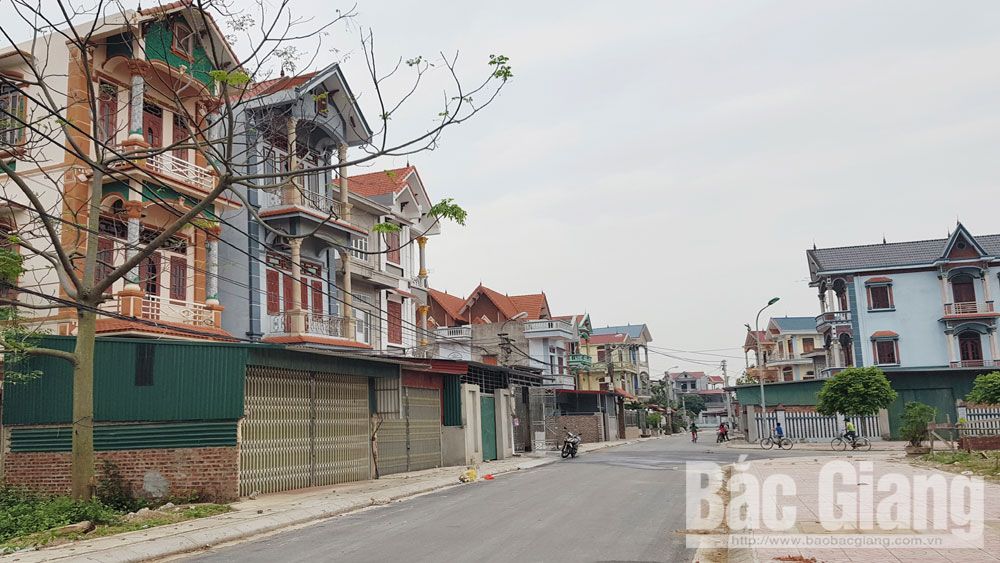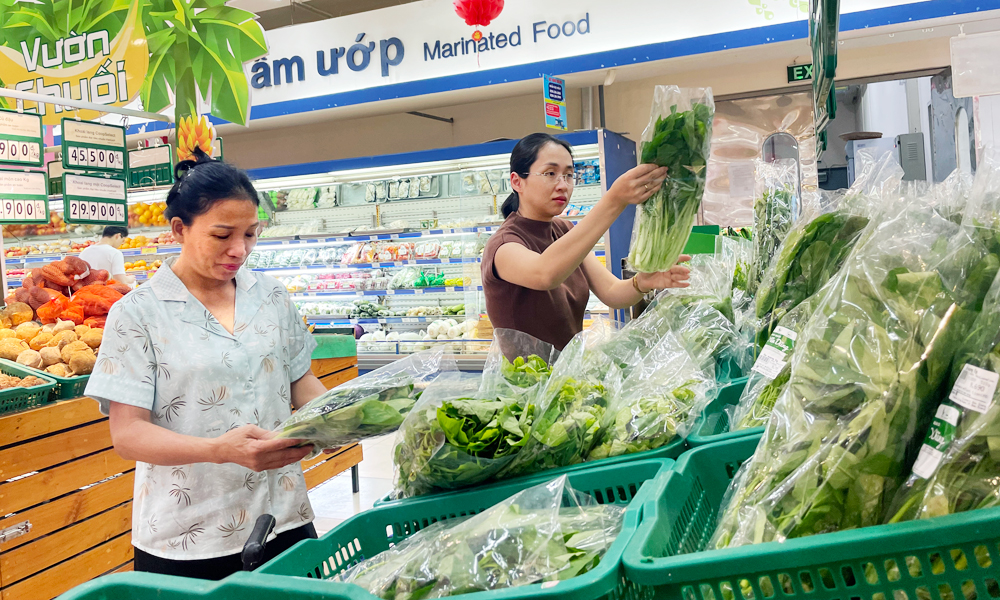Suburban communes’ economy flourishes, with complete infrastructure
Income increases, people's lives improve
In recent years, the city's communes have gradually shifted their economic structure towards developing industry-handicrafts, trade and services and high-tech agricultural production, contributing to increasing efficiency. For example, in Dong Son commune, the trade and service sector accounts for more than 48 percent and industry-handicrafts over 28 percent, while agriculture-forestry makes up only a small proportion.
 |
|
The landscape of Soi village, Dong Son commune. |
In Soi, Chua and Dong Sau villages, most of the people trade in consumer goods, with hundreds of households bringing goods from Lang Son to supply to markets inside and outside the province.
Do Trong Luyen, head of Chua village, said that most of local laborers engage in trade and services and work as workers in enterprises. Their income is increasing. Currently, the number of rich households accounts for nearly half, while the rest have average living standards.
Having a large land area and grasping the actual needs, many households in Song Khe commune have built houses for workers in industrial parks and clusters to hire, generating an average income of 30-35 billion VND (1.29-1.5 million USD) per year. In Song Khe and Liem Xuyen villages, 70 percent of the households provide rented housing service, sell consumer goods and do extra jobs so they have a better life.
The economic structure of Dinh Tri and Song Mai communes has also gradually shifted, toward reducing the proportion of agriculture and increasing that of industry, handicrafts and trade. Although the majority of the people in Dinh Tri are still involved in agricultural production, in recent years, they have focused on the application of farming techniques that bring about economic benefits. The average per capita income in the commune is estimated at 48.3 million VND (nearly 2,100 USD) per year.
Now, the whole city has completed agricultural land exchange; zoned off and developed safe vegetable and high-quality flower production areas with a total area of 235 hectares and aquaculture on 540 hectares, together with dozens of hi-tech agricultural models.
The production value per hectare of agricultural land reaches 131 million VND, 26 million VND higher than the provincial average. Farmers' living standards have been improved, with an average per capita income of about 40 million VND per year, doubling the figure of 2010. The rate of poor households in rural areas has dropped to 1.35 percent while the rate of people with jobs reaches 94.2 percent.
Investing in upgrading rural infrastructure
Currently, the landscape and appearance of rural communes have been renovated. Village roads and alleys are clean and beautiful, with many spacious construction works to serve cultural, art and sports activities of the people.
Responding to the movement "Bac Giang city exerts joint efforts to build new-style rural areas" launched by the municipal People's Committee, since 2011, the whole city has mobilized more than 666 billion VND (28.76 million USD) to build new-style rural areas. Communes have spent a lot of resources building technical infrastructure to create a modern and beautiful rural landscape and environment, thus promoting socio-economic development and serving people's life.
Through the communications work of the Vietnam Fatherland Front and mass organizations, local households have contributed money to build rural infrastructure as well as repair and renovate houses, gardens, gates and alleys. Many families have donated residential and agricultural land to build rural roads and intra-field canals. More than 5,000 workdays have been mobilised to construct infrastructure works.
In the communes, all the commune, village, inter-village roads and most of the canals have been cemented. Schools have met national standards. All villages have cultural houses and entertainment places for children. Most households have houses meeting new-style rural standards.
According to Tran Van Thanh, head of the municipal Economic Department, the People's Committee of Bac Giang city has instructed the communes to continue to support and encourage people to develop production to improve income and reduce poverty sustainably. They are urged to focus on mobilizing resources to invest in completing socio-economic infrastructure in accordance with urban development planning in combination with rural environment and landscape protection, ensuring compliance with the orientation of establishing wards in the future.
Vi Le Thanh
 Bắc giang
Bắc giang















Reader's comments (0)